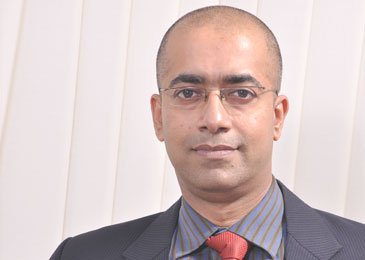"Siemens has pioneered the 3rd generation TSH assay"
July 12, 2013 | Friday | Interviews | By Rahul Koul Koul
"Siemens has pioneered the 3rd generation TSH assay"
Mr. Amol Pandit, business head CAI, Siemens Healthcare
With the advent of technology, diagnosis of hormonal diseases has become relatively easier in the last few years. However in the past, thyroid disorders have been confused with other related conditions, with lack of appropriate treatment leading to other disorders such as infertility or stroke. Recently the International Thyroid Awareness Week 2013 from May 25th-31st was celebrated to raise awareness and educate people about the critical role the thyroid gland plays in people's wellbeing.
In an email interaction with BioSpectrum, Amol Pandit, business head, Chemistry, Automation and Immunoassay at Siemens Diagnostics talks about Siemens' 3rd generation TSH assay designed to detect and diagnose thyroid dysfunction. Siemens has been a pioneer in introducing the ultra-sensitive 3rd Generation TSH assay, which is available in India since the inception of the diagnostics division of Siemens.
1) In your experience, how prevalent is hyperthyroidism/ hypothyroidism in the Indian population? What are the possible causes for the same?
According to the projection from various studies on thyroid disease, it has been estimated that about 42 million people in India suffer from thyroid diseases and about 100 million with sub-clinical (without any clinical symptoms) disease. There is no published data available specifically for hyperthyroidism and hypothyroidism in the Indian population.
Notable causes for the same are iodine deficiency and autoimmune disorders. Sometimes surgical removal of the thyroid gland causes hypothyroidism. People are also born without the thyroid gland (condition called Congenital Hypothyroidism).
2) Can you elaborate about the 3rd Generation TSH assay offered by Siemens? How different is it from other tests available in the market?
Thyroid-stimulating hormone (TSH) stimulates the thyroid gland to synthesize and secrete thyroid hormone. TSH levels exit the euthyroid reference range in the very early phases of developing thyroid disease, while the patient's condition is still sub-clinical and thyroid hormone levels (T4 and T3) remain within their euthyroid reference ranges. Improvements in the sensitivity of TSH assays allow it to be used for detecting both hyper- and hypothyroidism. Assays with a functional sensitivity of < 0.02 mIU/L are classified as "third generation" assays. To diagnose hyperthyroidism accurately, TSH assay sensitivity, the lowest reliably measured TSH concentration, must be 0.02 mIU/L or less. Some less sensitive TSH assays cannot reliably distinguish patients with hyperthyroidism from those with euthyroidism.
Siemens has been the pioneer in introducing the 3rd Generation TSH assay, which is sensitive and precise, with imprecision performance that exceeds the criteria recommended by the NACB for TSH methods. Quantification of circulating levels of TSH using Siemens' 3rd Generation TSH assay can help physicians to:
• detect and monitor thyroid dysfunction
• distinguish marked TSH suppression ( < 0.01 μ IU/mL) from sub-clinical hyperthyroidism
• distinguish true hyperthyroidism from suppressed TSH values in hospitalized patients with non-thyroidal illness (NTI)
• assess severity of hyperthyroidism
• distinguish Graves' disease from sub-clinical hyperthyroidism or acute NTI
3) Was this assay developed in India? Does the healthcare division of Siemens have an R&D setup in India?
This assay was developed in Germany. Yes, Siemens Healthcare has its Corporate Technology research arm in Bangalore and manufacturing unit at Goa, which is also the development center for many X-ray products.
4) Does this assay have any special features in terms of automation or time required?
Siemens is known for its Automation and Immunoassay systems that ensure reduced turnaround times, while providing fast and accurate results that further help in timely treatment. The 3rd generation TSH assay runs on high throughput ADVIA Centaur XP/CP immunoassay platforms and the time taken to get the first result is 15 minutes.









